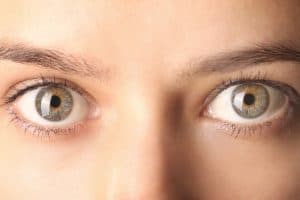
Below, Mark Mandel, MD, discusses below how diabetes may lead to certain eye conditions.
Diabetic Retinopathy
When high blood sugar begins to damage the vessels in the retina, it can lead to a condition called diabetic retinopathy. The damaged vessels can swell and leak, which causes blurry vision or a cease in blood flow. This can cause new blood vessels to grow, and sometimes they grow abnormally, causing further damage.
Diabetic retinopathy usually impacts both eyes and has two main stages:
Early stage: Retinal blood vessel walls weaken and become distorted, forming pockets that leak fluid and cause the macula to swell and damage your vision.
Advanced stage: In advanced stage retinopathy, the new blood vessels that form in the retina are weak. They can bleed, which causes dark spots in your vision. Excessive bleeding can cause total vision loss.
Patients with type 1, type 2, or gestational diabetes can develop this condition. Long-term diabetes can increase your chances of developing this condition.
Glaucoma
Glaucoma is the name for a group of eye diseases that cause damage to the eyes. Diabetes can cause open-angle glaucoma. It can also cause neovascular glaucoma, which happens when the newly generated blood vessels grow onto the iris, blocking fluid drainage, which in turn can raise intraocular pressure.
Cataracts
When the clear lens of the eye is clouded, it is called a cataract. Although many patients have cataracts, those with diabetes are more likely to develop them due to high blood sugar causing a build-up of deposits in the lens.
Email Your Vision and Eye Health Questions
Vision loss can be a key symptom of diabetic eye problems, and early detection and intervention can help preserve your vision. If you are experiencing diabetes-related issues with your eyes, it may be time to see a qualified ophthalmologist. Contact Bay Area LASIK and cornea specialist, Mark Mandel, MD, via email or by calling 510-886-3937 today.